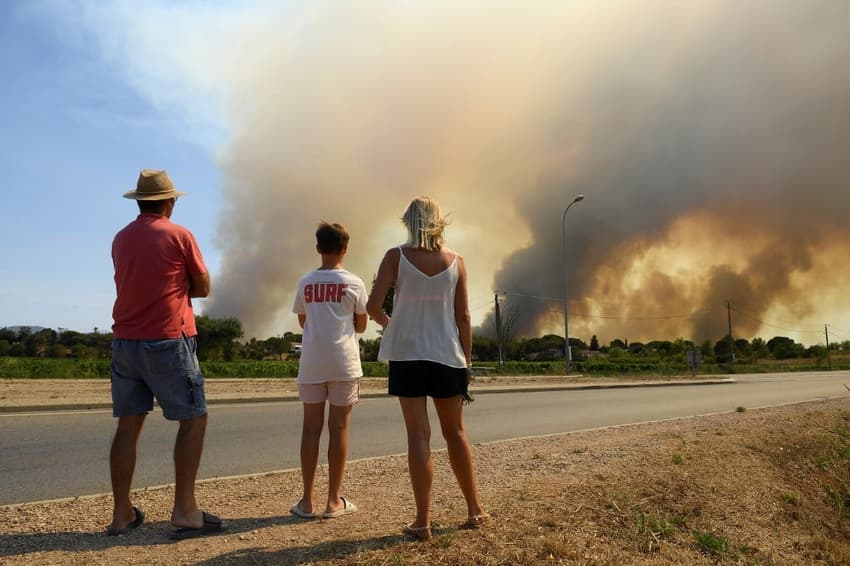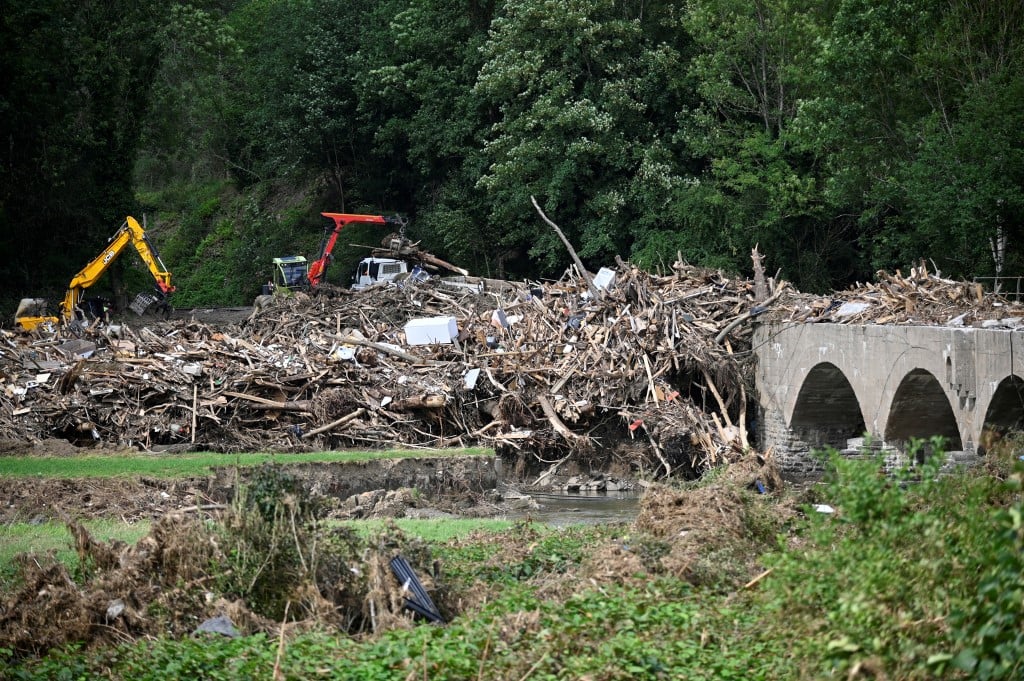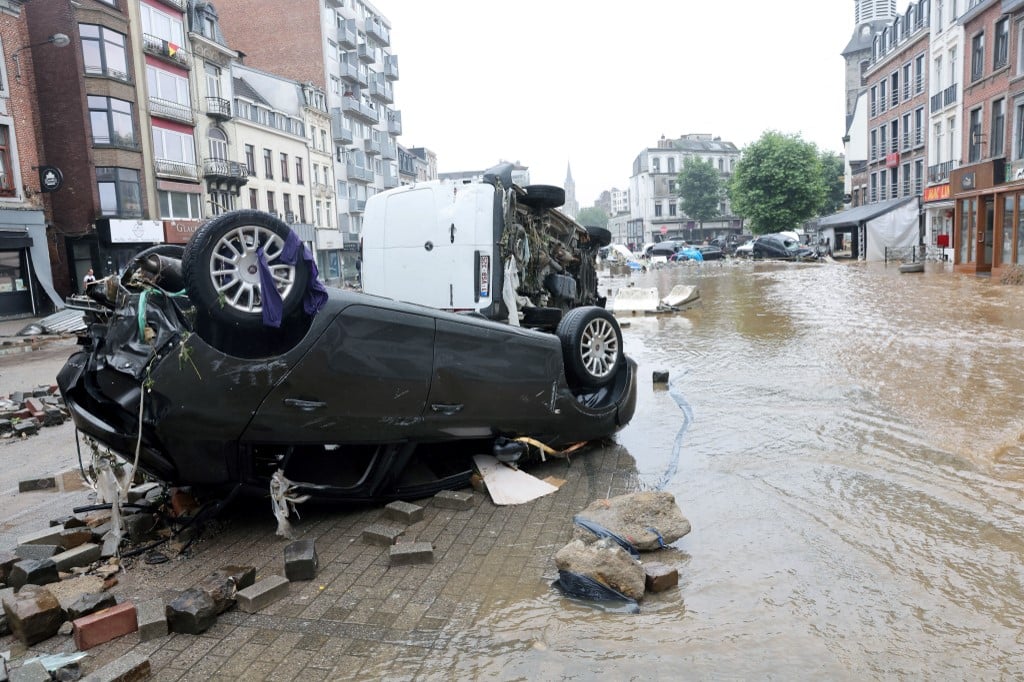EXPLAINED: How the climate crisis is hitting Europe hard

From deadly wildfires to catastrophic floods, Europe is seeing the impact of the climate crisis with episodes of extreme weather only likely to increase in the coming years as average temperatures rise.
Europe endured record extreme weather in 2021, from the hottest day and the warmest summer to deadly wildfires and
flooding, the European Union's climate monitoring service reported Friday.
While Earth's surface was nearly 1.2 degrees Celsius warmer than pre-industrial levels last year, Europe saw an average increase of more than two degrees, a threshold beyond which dangerous extreme weather events become
more likely and intense, the Copernicus Climate Change Service (C3S) said.
The warmest summer on record featured a heatwave along the Mediterranean rim lasting weeks and the hottest day ever registered in Europe, a blistering 48.8C (120 degrees Fahrenheit) in Italy's Sicily.
In Greece, high temperatures fuelled deadly wildfires described by the prime minister as the country's "greatest ecological disaster in decades".
Forests and homes across more than 8,000 square kilometres (3,000 square miles) were burned to the ground.

Front loaders work to move branches and uprooted trees near a bridge over the Ahr river in Insul, Ahrweiler district, western Germany, on July 28, 2021, weeks after heavy rain and floods caused major damage in the Ahr region. - At least 180 people died when severe floods pummelled western Germany over two days in mid-July, raising questions about whether enough was done to warn residents ahead of time. (Photo by Sascha Schuermann / AFP)
A slow-moving, low-pressure system over Germany, meanwhile, broke the record in mid-July for the most rain dumped in a single day.
The downpour was nourished by another unprecedented weather extreme, surface water temperatures over part of the Baltic Sea more than 5C above average.
Flooding in Germany and Belgium caused by the heavy rain -- made far more likely by climate change, according to peer-reviewed studies -- killed scores and caused billions of euros in damage.
As the climate continues to warm, flooding on this scale will become more frequent, the EU climate monitor has warned.
"2021 was a year of extremes including the hottest summer in Europe, heatwaves in the Mediterranean, flooding and wind droughts in western Europe," C3S director Carlo Buontempo said in a statement.
"This shows that the understanding of weather and climate extremes is becoming increasingly relevant for key sectors of society."

A picture taken on July 15, 2021 shows damaged cars on a flooded street in the Belgian city of Verviers, after heavy rains and floods lashed western Europe, killing at least two people in Belgium. (Photo by François WALSCHAERTS / AFP)
'Running out of time'
The annual report, in its fifth edition, also detailed weather extremes in the Arctic, which has warmed 3C above the 19th-century benchmark -- nearly three times the global average.
Carbon emissions from Arctic wildfires, mostly in eastern Siberia, topped 16 million tonnes of CO2, roughly equivalent to the total annual carbon pollution of Bolivia.
Greenland's ice sheet -- which along with the West Antarctic ice sheet has become the main driver of sea level rise -- shed some 400 billion tonnes in mass in 2021.
The pace at which the world's ice sheets are disintegrating has accelerated more than three-fold in the last 30 years.
"Scientific experts like the IPCC have warned us we are running out of time to limit global warming to 1.5C," said Mauro Facchini, head of Earth observation at the European Commission's Directorate-General for Defence Industry and Space, referring to the UN's science advisory panel.
"This report stresses the urgent necessity to act as climate-related extreme events are already occurring."
Comments (3)
See Also
Europe endured record extreme weather in 2021, from the hottest day and the warmest summer to deadly wildfires and
flooding, the European Union's climate monitoring service reported Friday.
While Earth's surface was nearly 1.2 degrees Celsius warmer than pre-industrial levels last year, Europe saw an average increase of more than two degrees, a threshold beyond which dangerous extreme weather events become
more likely and intense, the Copernicus Climate Change Service (C3S) said.
The warmest summer on record featured a heatwave along the Mediterranean rim lasting weeks and the hottest day ever registered in Europe, a blistering 48.8C (120 degrees Fahrenheit) in Italy's Sicily.
In Greece, high temperatures fuelled deadly wildfires described by the prime minister as the country's "greatest ecological disaster in decades".
Forests and homes across more than 8,000 square kilometres (3,000 square miles) were burned to the ground.

A slow-moving, low-pressure system over Germany, meanwhile, broke the record in mid-July for the most rain dumped in a single day.
The downpour was nourished by another unprecedented weather extreme, surface water temperatures over part of the Baltic Sea more than 5C above average.
Flooding in Germany and Belgium caused by the heavy rain -- made far more likely by climate change, according to peer-reviewed studies -- killed scores and caused billions of euros in damage.
As the climate continues to warm, flooding on this scale will become more frequent, the EU climate monitor has warned.
"2021 was a year of extremes including the hottest summer in Europe, heatwaves in the Mediterranean, flooding and wind droughts in western Europe," C3S director Carlo Buontempo said in a statement.
"This shows that the understanding of weather and climate extremes is becoming increasingly relevant for key sectors of society."

'Running out of time'
The annual report, in its fifth edition, also detailed weather extremes in the Arctic, which has warmed 3C above the 19th-century benchmark -- nearly three times the global average.
Carbon emissions from Arctic wildfires, mostly in eastern Siberia, topped 16 million tonnes of CO2, roughly equivalent to the total annual carbon pollution of Bolivia.
Greenland's ice sheet -- which along with the West Antarctic ice sheet has become the main driver of sea level rise -- shed some 400 billion tonnes in mass in 2021.
The pace at which the world's ice sheets are disintegrating has accelerated more than three-fold in the last 30 years.
"Scientific experts like the IPCC have warned us we are running out of time to limit global warming to 1.5C," said Mauro Facchini, head of Earth observation at the European Commission's Directorate-General for Defence Industry and Space, referring to the UN's science advisory panel.
"This report stresses the urgent necessity to act as climate-related extreme events are already occurring."
Join the conversation in our comments section below. Share your own views and experience and if you have a question or suggestion for our journalists then email us at [email protected].
Please keep comments civil, constructive and on topic – and make sure to read our terms of use before getting involved.
Please log in here to leave a comment.